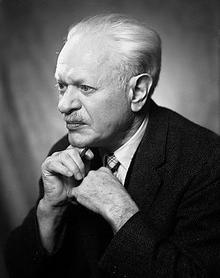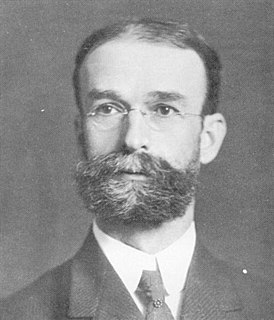Top 93 Specialization Quotes & Sayings - Page 2
Explore popular Specialization quotes.
Last updated on April 15, 2025.
We are lucky in the United States to have our liberal arts system. In most countries, if you go to university, you have to decide for all English literature or no literature, all philosophy or no philosophy. But we have a system that is one part general education and one part specialization. If your parents say you've got to major in computer science, you can do that. But you can also take general education courses in the humanities, and usually you have to.
The average student emerges at the end of the Ph.D. program, already middle-aged, overspecialized, poorly prepared for the world outside, and almost unemployable except in a narrow area of specialization. Large numbers of students for whom the program is inappropriate are trapped in it, because the Ph.D. has become a union card required for entry into the scientific job market.
I think at a place like Harvard, our experience, I was involved with, at various stages, in trying to implement a new general education curriculum, our experience was that Harvard's all about specialization, that's not just true of the professori, it's also true of a lot of the undergraduates, too, and they come, they kind of know what they want to do, they select it because they have a strong aptitude for something in particular.
Truth and Truthfulness is an ambitious work, and its journeys into history give it a breadth unusual in these days of increased academic specialization. . . . William's book combines real history and fictional constructs to tell a revealing story that makes us reconsider the meaning of familiar concepts.
I can probably earn more in an hour of writing or even teaching than I could save in a whole week of cooking. Specialization is undeniably a powerful social and economic force. And yet it is also debilitating. It breeds helplessness, dependence, and ignorance and, eventually, it undermines any sense of responsibility.
In 1600 the specialization of games and pastimes did not extend beyond infancy; after the age of three or four it decreased and disappeared. From then on the child played the same games as the adult, either with other children or with adults. . . . Conversely, adults used to play games which today only children play.
Technological society leads to increasing numbers of people who cannot adapt to the inhuman rhythm of modern life with its emphasis on specialization. A class of people is growing up who are unexploitable because they are not worth employing even for the minimum wage. Technological progress makes whole categories of people useless without making it possible to support them with the wealth produced by the progress.
Clearly, one does not have to give up being an academic, retreat from rigorous research, or renounce the importance of specialization in order to address major social issues. I don't think you give up theoretical rigor by writing in a way that addresses major social concerns and is at the same time accessible to wider informed general audiences.
The history of clothing practices provides guidance for fashioning a new ethic that emphasizes quality over quantity, longevity over novelty, and versatility over specialization. With such an ethic, consumers would demand a shift toward more timeless design, away from fast-moving trends. Clothes could become more versatile in terms of what they can be used for, their ability to fit differently shaped bodies and to be altered.
A human being should be able to change a diaper, plan an invasion, butcher a hog, conn a ship, design a building, write a sonnet, balance accounts, build a wall, set a bone, comfort the dying, take orders, give orders, cooperate, act alone, solve equations, analyze a new problem, pitch manure, program a computer, cook a tasty meal, fight efficiently, die gallantly. Specialization is for insects.
When profits are pursued by geographic interchange of goods, so that commerce for profit becomes the central mechanism of the system, we usually call it "commercial capitalism." In such a system goods are conveyed from ares where they are more common (and therefore cheaper) to areas where they are less common (and therefore less cheap). This process leads to regional specialization and to division of labor, both in agricultural production and in handicrafts.
All the accoutrements that distinguish us from animal existence were put in place when we had a different kind of mind than we have now. We didn't have a mind that favored role specialization, and male dominance, and anxiety over female sexual activity related to feelings of male ownership. That all came later.
The greatest cost of the specialization of technological life - and out of which all other damages are birthed - is arguably our separation from the practical and enriching sense of ourselves as embodied beings. When we are alienated from the wisdom of the body, our lives become theoretical and abstract, and we are distanced from the direct, felt sense of living.
We can cooperate more easily with those who more easily intelligible to us, who are more familiar to us. But the advantages of specialization of labor often push us in the direction working with people who have different strengths and viewpoints than we do. I think that this is one major reason why moralities are always subject to change, because some of the people we cooperate with are going to be different from us in ways that often lead them to have different value orientations than we have; and interacting with them can change us.
Let us admit that most of us writers feel an essential aversion to politics. By taking such a position, however, we accept the perverted principle of specialization, according to which some are paid to write about the horrors of the world and human responsibility and others to deal with those horrors and bear the human responsibility for them.
There are all these different areas of specialization. That's it. You have to be a specialist nowadays. There's no other way. I was an artist for a long time, but I was always into being a general practitioner. I did a little of this and a little of that. And nothing got me anywhere. You have to specialize. If you don't specialize, it takes you until you're about fifty years old before anybody notices that you're doing anything at all.
It seems that the increased number of scientific workers, their being split up into groups whose studies are limited to a small subject, and over-specialization have brought about a shrinking of intelligence. There is no doubt that the quality of any human group decreases when the number of the individuals composing this group increases beyond certain limits... The best way to increase the intelligence of scientists would be to decrease their number.
Extrapolated, technology wants what life wants:
Increasing efficiency
Increasing opportunity
Increasing emergence
Increasing complexity
Increasing diversity
Increasing specialization
Increasing ubiquity
Increasing freedom
Increasing mutualism
Increasing beauty
Increasing sentience
Increasing structure
Increasing evolvability
I love to exercise my creativity in many ways but as each year of specialization goes by I feel further and further from my other creative selves. I used to be able to see myself doing many things and sometimes I still long for a job that involves less pressure and grappling with people but, as you say, I am one of the lucky ones so I try to just focus on feeling lucky and carry on!
Images detached from every aspect of life merge into a common stream, and the former unity of life is lost forever. Apprehended in a partial way, reality unfolds in a new generality as a pseudo-world apart, solely as an object of contemplation. The tendency toward the specialization of images-of-the-world finds its highest expression in the world of the autonomous image, where deceit deceives itself. The spectacle in its generality is a concrete inversion of life, and, as such the autonomous movement of non-life.































